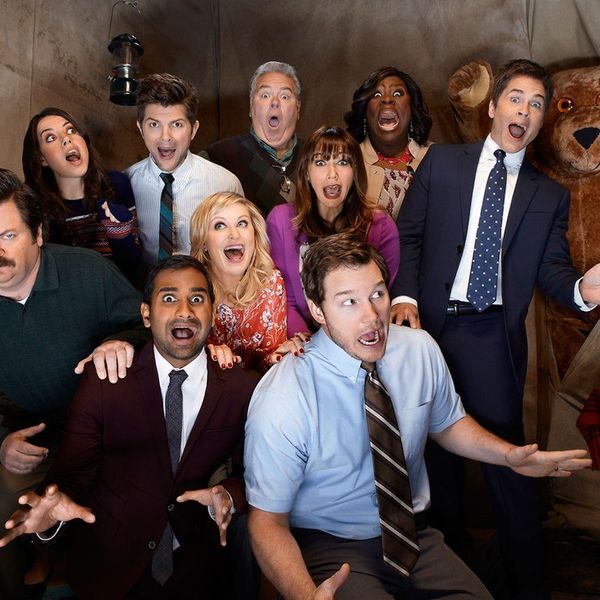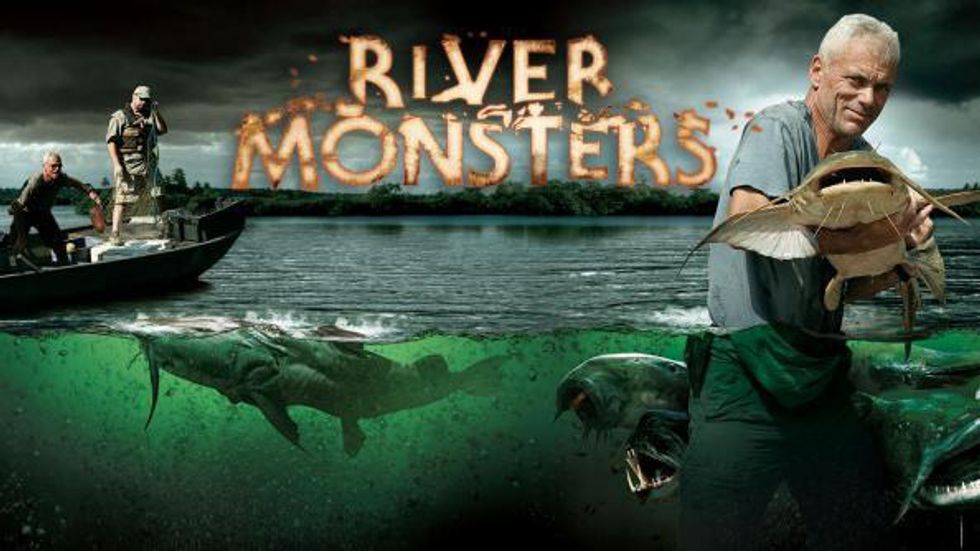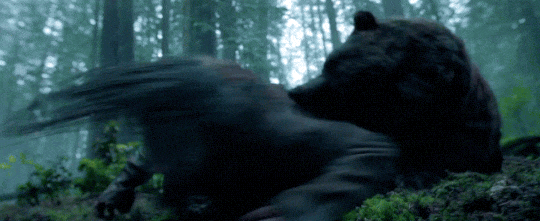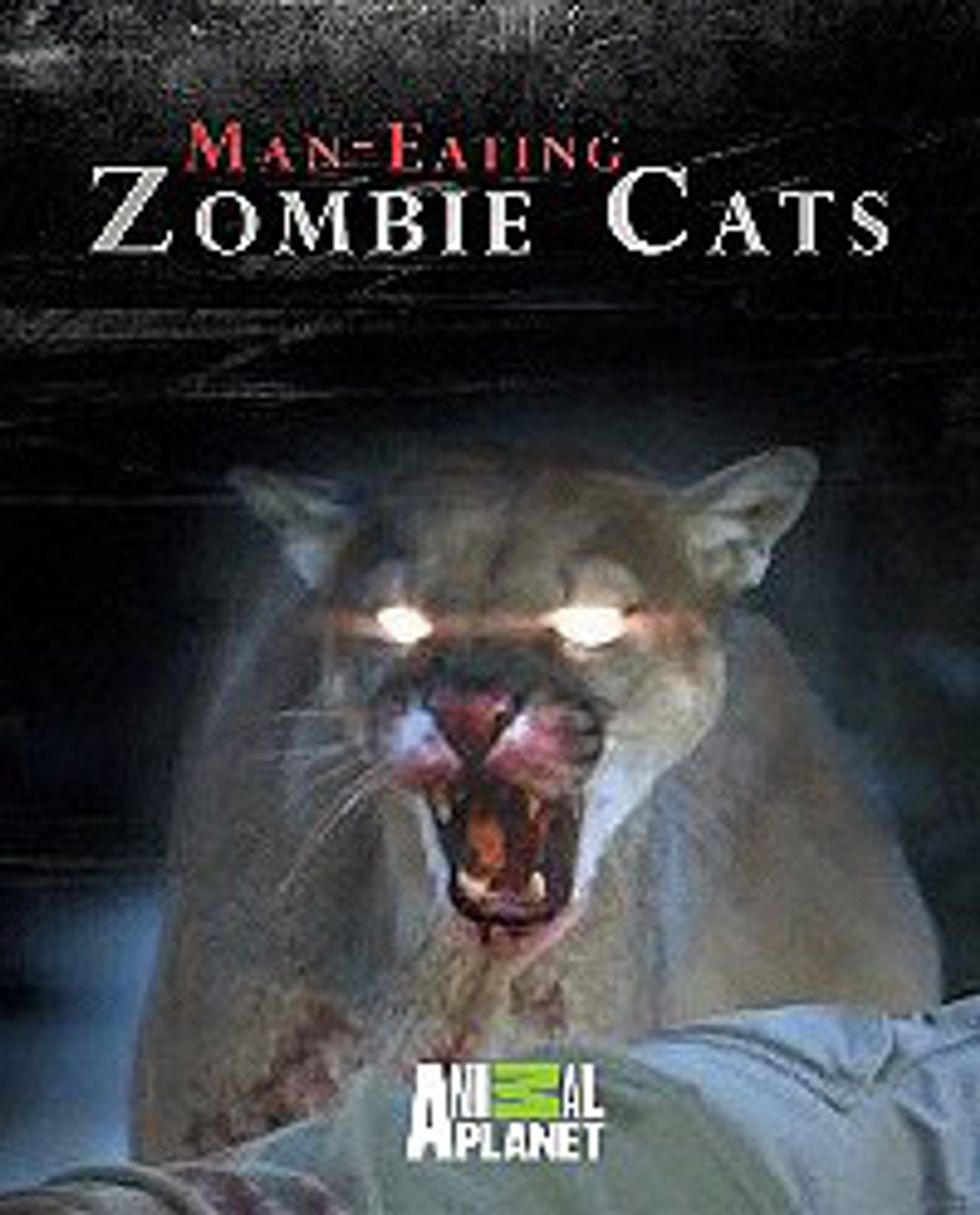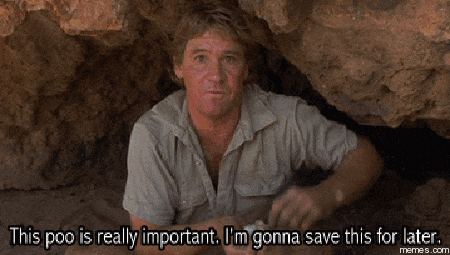If you've flipped through the listings for the Discovery Channel or Animal Planet recently, you've probably come across shows like this:
Within recent years, reality TV and supposed "documentary shows" portraying the "real world" have steadily gained popularity with American audiences. However, anyone who's watched Honey Boo Boo or The Real World knows that these shows embellish and manipulate reality, exacerbating conflicts and fabricating drama to create that "wow" factor. The reason? Americans these days seem harder and harder to impress.
When we go to the movie theater, we want 3D, in-your-face action that looks just like the real deal just to go home and spend hours playing gruesome combat video games (and I'm not saying video games aren't awesome, cause they are). We look for the fantastical, monstrous, and unexpected everywhere we go. Tabloids spout ridiculous headlines just to catch our attention:
In this digital world where everyone is flooded with information, it's going to take an awful lot to catch our attention. At least, that's what advertising teams seem to think.However, when major media platforms that claim to be "educational" start participating in this media frenzy, it can be dangerous.
Recently, animals have been portrayed in two lights: cute and cuddly, or savage and bloodthirsty. While we all seem to agree that Pomeranians are the coolest thing since sliced bread, we screech when we see a snake and think spiders are the spawn of the devil. This article even refers to the trapdoor spider's underground living quarters as its "lair of death".
Oh, come on. Really?
It's important to recognize that all animals are intrinsically "wild" in some regard. They are not human, and therefore have different needs and desires. Of course, this doesn't stop us from forcing our own desires and personalities onto them; just look at this happy fella:
Yes, bears deserve their space and should be treated with caution. In fact, you should probably just try to stay the fuck away. But they are not monsters. We're all here on this planet to do one thing: survive. And as long as we don't get in the way of that, they usually don't pick a fight (barring some Revenant-esque situations).
Because of this strange dichotomy, we get Animal Planet specials like this one:
...are you kidding me? Man-eating zombie cats? Listen: I think we all can agree that mountain lions are not cute, cuddly, or pleasant to be around. They just aren't. But...really?We can all learn a little from the late, great Steve Irwin and his nature shows. Yes, The Crocodile Hunter also achieved fame through a shock 'em advertising gimmick, and Steve often seemed to underestimate the serious threats the animals he worked with presented. He was a little...zany.
But he recognized the importance of his educational platform, and he chose not to demonize the "monsters" he showcased on the series.
Most of these little dudes are just trying to defend themselves, and, hoaky as it may be, Irwin acknowledges this. Shows that demonize predators (especially tertiary predators) do harm to conservation efforts. Children who watch these "educational" Animal Planet shows may develop a sincere fascination with animals, but for all the wrong reasons. If scientists want to instill children with a genuine and healthy respect for animals, they should keep away from these shock-value gimmicks. The word "monster" should be eliminated from our vocabulary except when it comes to Godzilla or the bogeyman.
Must everything be a WWE smackdown? Can advertisers only capture our interest by flashing obnoxious, misleading displays of horror or violence in our faces? 10 years ago, PBS shows like Nature or NOVA portrayed "the circle of life" in a relatively neutral, unbiased way. Today, we seem to have moved away from that. Let's start acknowledging animals for what they really are: foreign, unpredictable, and frightening. But let's not pretend that they're hiding under our beds, waiting to kill us.

